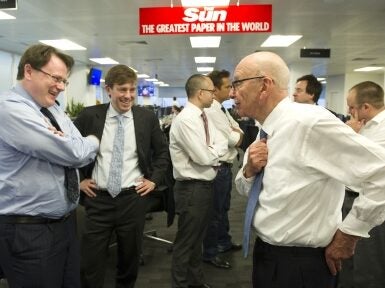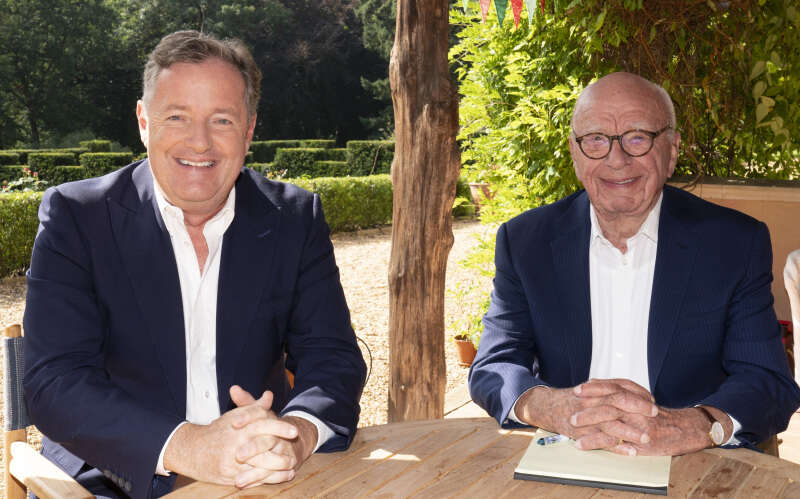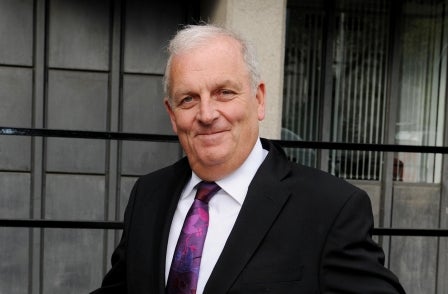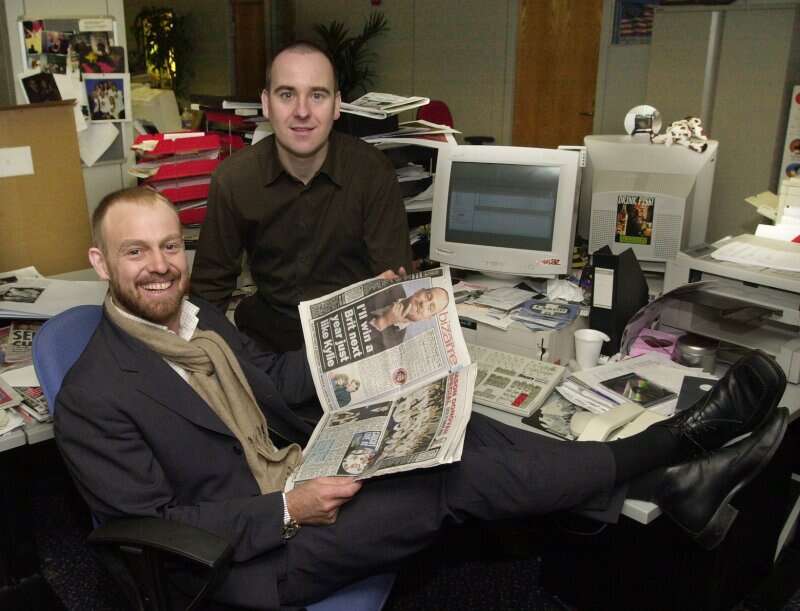
What is the single quality that has made Rupert Murdoch the richest and most powerful media mogul of our age?
As the News Corp chairman announced plans to (semi) retire in November Press Gazette asked some of his closest former colleagues: What is the Murdoch factor that has driven his success?
Over the course of 70 years, Murdoch built up a media empire worth more than $100bn at its peak. He sold the entertainment arm 21st Century Fox to Disney for $71bn in 2017 (including News Corp’s 39% stake in Sky). Sky was then sold to Comcast for £30bn the following year. News Corp today has a market cap of around $12bn and includes Fox News, Harper Collins, Dow Jones, The Sun, the Times titles, the Wall Street Journal and the New York Post.
Murdoch turned The Sun from a loss-making broadsheet to the biggest-selling tabloid in the UK with a daily sale of nearly five million at its peak, reinventing popular journalism in the process.
He launched satellite TV in the UK and gambled everything on it being a success. His biggest achievement in the US is unarguably the creation of Fox as a fourth TV network. His decision to charge for online news across all his titles in 2009 paved the way for a new era of profitability for The Times and Sunday Times.
In this first piece on the Murdoch factor, News Corp insiders from his long career share their views.
Listen to Press Gazette’s podcast on The Murdoch Factor.
Piers Morgan: ‘Unquenchable will to win’
(Sun journalist 1988–94, News of the World editor 1994–95, TalkTV presenter and Sun columnist 2022 onwards)

“He has [an] insatiable curiosity, a fearless belief in his own vision and gut instinct and an unquenchable will to win.”
Simon Jenkins: He saved the British press
(Times editor 1990 to 1992)
“I regard Murdoch as quite an extraordinary figure who towered over the media landscape and he did so because he was a brilliant leader.
“I have no doubt that he saved the British press. When he came to power in the late 1960s the general view was that there was room for about three or four national newspapers as there was in America. There were seven and there is still seven and that was largely due to Rupert Murdoch.
“He absolutely saw what the problem was. It needed an outsider. Half the people who didn’t go to Wapping knew he was right but they didn’t want to break ranks. He knew what was wrong and what was needed to make his newspapers economic. He had to break the power of the unions and he did it.
“Within about five years of Wapping all the other newspapers had broken the power of the unions. The result is the group of newspapers you had in 1985 are still the group you have got now more or less, it is quite remarkable.
“He was not an easy man to work for. He had his favourites and he would drop them quickly if he needed to. He was a ruthless man, I don’t think he needed to be but he was.
“I think his political influence in this country has been grossly overstated. His adoption of Donald Trump was inexcusable I think and to devote an entire television channel to him was just awful.
“He tended to go with the flow here in the UK, he was for Thatcher and he was for Blair. He was not politically sophisticated. He did not get very involved in political issues. I had no arguments with him on that or any subject, although we disagreed on almost everything.
“He had promised not to interfere with the Times editorially and I think on the whole, as far as politics was concerned, he didn’t.
“He did love being a journalist. There was nothing he liked more than being on the back bench or down on the stone. That was just natural in the man. He was not politically sophisticated in the sense that people like Conrad Black were.”
Kelvin MacKenzie: ‘Remains relentlessly ambitious’
(Sun editor 1981–92)

“Even at 92, I find it hard to believe that the Rupert I worked for doesn’t remain relentlessly ambitious, which is why I have a question mark over how the Lachlan appointment will work in the end.
“Never off the phone, he competes with his execs even more than with his commercial competitors.
“When sales and profits are up, he’s all smiles, but when things go in the opposite direction don’t expect a lifeboat to rescue you. That’s why he’s such a success.”
Dominic Mohan: ‘He loves mischief and making money’
(Sun editor 2009–13)

“Rupert Murdoch is arguably the world’s greatest – and definitely the most controversial – media entrepreneur of modern times. Up close for several decades, I witnessed a buccaneering populist who loved making mischief and money, but always adored creating news.
“A relentless torrent of energy, speed of thought and colossal ideas with the balls to take breathtaking risks, where anything is possible and no deal unachievable.
“But a man who always regarded himself as a journalist first.”
Stuart Higgins: He sensed ‘wind of change’ and forced The Sun to back Labour
(Sun deputy editor 1990–93, News of the World editor 1993–94, Sun editor 1994–98)

“There is no one who will say Mr Murdoch offered an easy shift. It was tough and demanding and I was deeply conscious of my lack of political antennae compared to other brilliant Sun editors. I became editor after being the district man in Bristol.
“But the opportunity to listen and learn from a man who truly loved every aspect of newspapers and journalists was amazing. He loved newspapers and he loved journalists.
“I remember at a particular meeting he worked out the cost of producing an eight-page comic strip supplement in seconds and it was a fortune, but he backed the innovation and initiative to move forward and experiment and increase circulation or give the paper an edge over its rivals.
“He was not quite so receptive when we had a brief discussion about putting sport on the front page and news of the day on the back page when Sky and TV coverage elevated football interest above news.
“His political instincts were astute wherever he was in the world and if he called – as he did often to every Sun editor – he wanted to know what was going on. It was never a frivolous call.
“Mr Murdoch felt The Sun and the editor of the day always gave him authentic feedback about what was really happening in the country and what were the big issues of the day impacting the man on the street. He was frequently surprised that the serious conversation was not reflected in the content of the next day’s paper!
“It was a call you dreaded but could never avoid.
“Even more difficult if you knew you were going to splash on a showbiz or funny story, and he was asking about the politics.
“I recall vividly the period when Mr Murdoch’s instincts were to switch horses from Mrs Thatcher to Tony Blair in 1997, despite the desperate pleas of political editor Trevor Kavanagh and the senior editorial team to keep faith with the Tories.
“The boss sensed a ‘wind of change’ in the country and he was right, but he backed Blair personally and not the party.
“That night, a Friday, it was decided I should be interviewed on Newsnight to explain the political switch. No great PR teams or rehearsals then and Paxman’s brilliant first question was: ‘So, Stuart, when did Mr Murdoch tell you to vote labour?’
“So much for editorial independence but why else would you own a media empire unless you could influence change?
“There were plenty of bollockings and for me, one of the biggest was when we ran an editorial supporting the replacement of the Royal yacht Brittania.
“He is not a massive fan of the Royal family, despite his regular question of: ‘How’s yer mate Camilla?’, but the yacht support editorial made him incandescent with rage.
“I was in a dingy hotel room near Winchester in a state of severe trepidation, to say the least, preparing to give prosecution evidence in a trial involving Bruce Grobbelaar when he got through to me and said sharply, “Have you gone f mad?”
“I wasn’t quite sure what he meant and invited him to tell me, and he did -– making it very [clear] where he stood on taxpayers’ support for the Royals. It was one of many sleepless nights.
“I will forever appreciate his support for me personally and the brilliant workforce of The Sun during my time as editor and deputy editor.
“Sure, he had a massive political and commercial imperative that drove his thinking and decision-making, but when there were cock ups it was our fault and he understood. Mistakes are inevitable in such high stakes.
“I remember the thrill of the day when The Sun’s circulation reached a record 4.9 million on a Saturday in the late ’90s, boosted by the TV mag and the Grand National – always a big sales day for the punter’s paper – and I was personally chuffed to express my pride and excitement with Mr M when he responded with: ‘Let me know when it’s five million.’
“Sadly, a day never to be seen.”
Stuart Kuttner: ‘An unceasing drive to win’
(Assistant editor News of the World from 1980, managing editor 1987–2009)

“Rupert Murdoch is probably the cleverest person I will ever know.
“He has immense foresight, gambler’s luck, huge grasp and a great deal more.
“What fuelled his success was KRM’s unceasing drive to win – and win again.
“But there was more – though many did not see this.
“First, he was almost always right in choosing his lieutenants for their skill, loyalty and sheer guts.
“When necessary though he could be merciless. A distinguished lifelong friend, close colleague and very senior executive was caught paying for home improvements with company money. Rupert sent a chauffeur with a short letter to fire him.
“For the most part, he encouraged his newspaper’s top teams to run their own shows, though he was rarely unaware of unimportant details.
“When my colleague, the late Philip Wrack, was negotiating his departure as deputy editor of the News of the World, he saw Rupert on a Saturday. ‘One more thing,’ said Philip, ‘I would like to keep my car, it’s just an old model.’
“‘Yeh,’ shot back Rupert, ‘but it is a Mercedes.’
“Another side was his warmth for staff members with medical or domestic problems.
“He knew if they had been loyal, and he did not hesitate to urge his senior people: ‘Just look after them.’ That could mean a generous pay-off, care in London’s leading private hospital or similar. That was how the Murdochian philosophy cascaded down.
“Rupert is an intensely complex man and can juggle and multi-task like no one else I know.
“One afternoon, arguing over the News of the World’s annual editorial budget – perhaps £20m then – he stepped out of the boardroom.
“While gone, I learned he had clinched 64% of Star TV in India for $525m.
“Another night, showing him and an incoming Sky TV boss over the press hall at Wapping, I said he was safe to stand his ground as an automatic goods vehicle loaded with a tonne reel of newsprint headed towards him. I was confident it would stop. Unhappily it ploughed into his shoe.
“Rupert survived. And so did my job.”
Email pged@pressgazette.co.uk to point out mistakes, provide story tips or send in a letter for publication on our "Letters Page" blog
